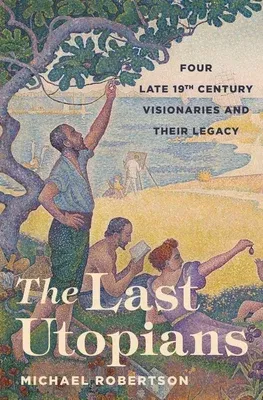Michael Robertson
(Author)The Last Utopians: Four Late Nineteenth-Century Visionaries and Their LegacyPaperback, 28 April 2020

Qty
1
Turbo
Ships in 2 - 3 days
In Stock
Free Delivery
Cash on Delivery
15 Days
Free Returns
Secure Checkout

Print Length
336 pages
Language
English
Publisher
Princeton University Press
Date Published
28 Apr 2020
ISBN-10
0691202869
ISBN-13
9780691202860
Description
Product Details
Author:
Book Format:
Paperback
Country of Origin:
US
Date Published:
28 April 2020
Dimensions:
23.11 x
15.49 x
2.29 cm
Genre:
Modern
ISBN-10:
0691202869
ISBN-13:
9780691202860
Language:
English
Location:
Princeton
Pages:
336
Publisher:
Weight:
362.87 gm